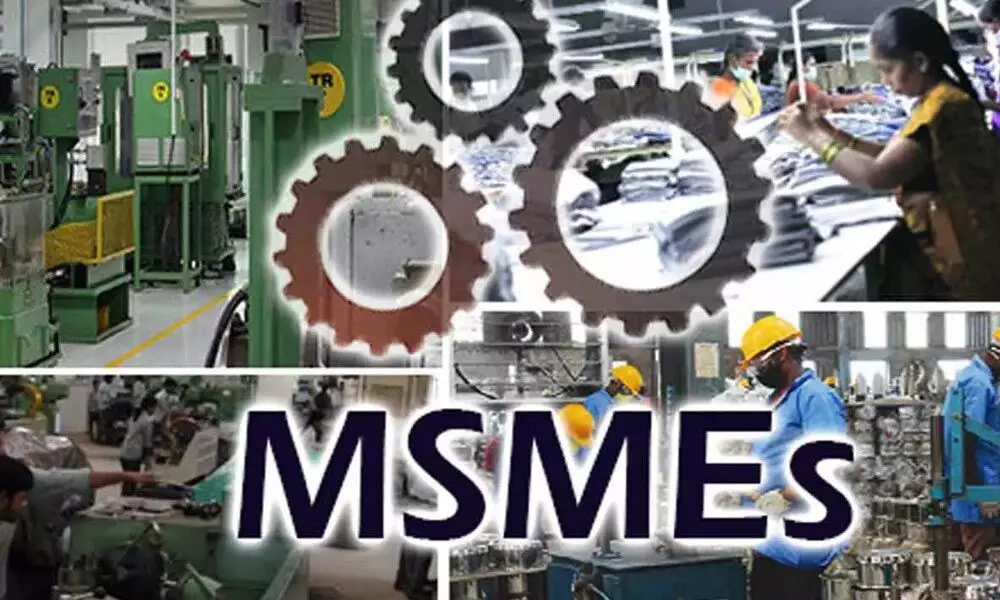E-invoicing norm hits MSMEs hard
CBIC has made electronic invoicing mandatory for all tax-paying businesses with an aggregate turnover exceeding Rs 100 cr
image for illustrative purpose

- 63.5 million MSMEs in India
- 29% is the MSME contribution if the Indian GDP
- 49% is MSMEs contribution to India's exports
- 111 million is the employment that MSME's offers to people
- 49% of India's workforce is employed with MSMEs
- 10% is the MSME's average growth rate People
Mumbai: MSMEs are faced with a lot of teething troubles due to E-invoicing, which has been made mandatory for them. From the beginning of this year, the Central Board of Indirect Taxes & Customs (CBIC) has made Electronic invoicing mandatory for all tax-paying businesses with an aggregate turnover exceeding Rs 100 crore.
The earlier norm, implemented on October 1, 2020, was applicable for businesses with an annual turnover of Rs 500 crore. The rule was further amended, making it applicable to companies with turnover of over Rs 100 crore since January 1.
Clearly, the CBIC's announcement has opened out channels for the development of e-invoicing software, which is fast, precise and dependable. On the other hand, it has opened the gate of digital connectivity for MSME's and other small-scale businesses.
The implementation of e-invoice norm is a difficult proposition for MSMEs as they have to buy software and hire skilled manpower for generating e-invoices. At present, only ERP accounting with internet connection can generate E-invoice as per GST, an industry source said.
Most of the non-ERP accounting softwares are not compatible with GSTN. Offline tools provided by GSTN helps generate e-invoice but at the same time recording and controlling of e-invoice is time consuming and cumbersome process. Any unnoticed error will cost the business in the form of penalty and fines, he added.
However, a section of people in the industry have welcomed the government's move. An announcement of this kind opens up multiple opportunities and challenges as the taxpayers need to be updated about the tax and technology that they are going to use in a precise & simpler manner.
"E-invoice is very good move of government as this helps in tracking GST input credit on real time basis and avoids hardship of companies and consultant to check error in manual invoice generation," says CMA Ajay Mohan, a Navi Mumbai-based practicing cost accountant.
The integration of the new rule also means that the e-invoicing system will be able to incorporate a larger group of taxpayers into the system. It will result in small businesses becoming a part of the digital economy by imbibing the accounting software required for e-invoicing. This will also help businesses to manage their accounts efficiently as invoices are processed digitally and speedily and will lead to making the administrative process much simpler.
Sharing his views on the development, Rajesh Gupta, Co-founder & Director of BUSY Infotech says, "This move by the CBIC will give a boost to the ecosystem of digital accounting software within the country as the number of micro, small and medium enterprises will grow. E-invoicing is a fast & cost-effective way to file your GST returns and it also helps in curbing manual errors and glitches. The digital route also helps in providing a sense of security and transparency for the businesses and will help them in joining the mainstream of the booming digital economy of India"
Taxpayers can generate E-invoices through modes such as a direct API (Application Programming Interface) integrated with the Invoice Registration Portal (IRP) and offline utility for generating bulk e-invoices. Through this initiative, the government is also expecting e-invoicing to have other major advantages such as improving the payment cycle for industry and giving boost to invoice-based lending to MSMEs.

